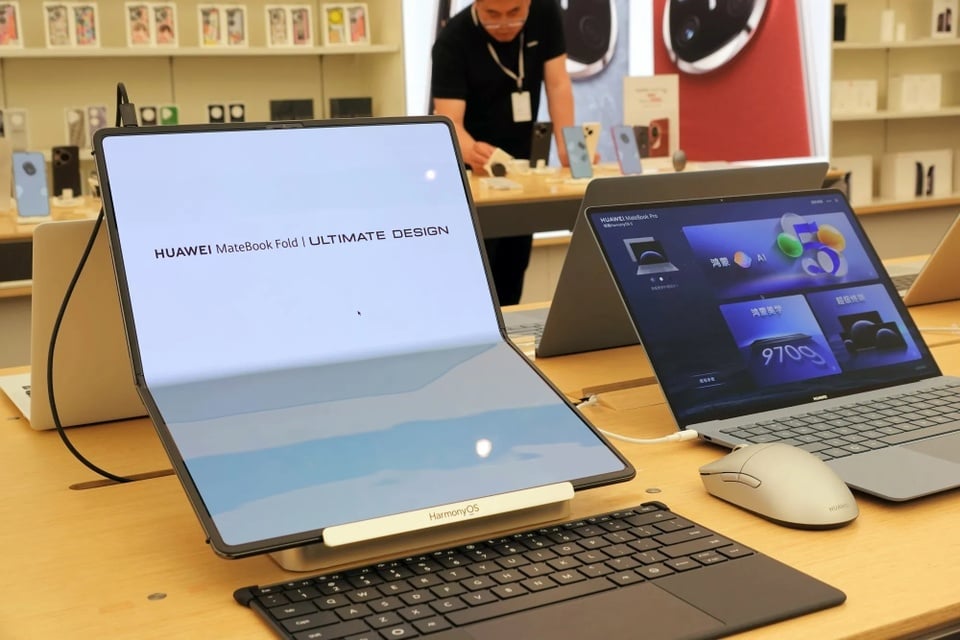 |
Huawei's latest line of laptops still uses outdated technology. Photo: NurPhoto . |
According to a report from the analytics firm TechInsights , the latest foldable version of the Huawei MateBook X Pro is equipped with a processor manufactured using SMIC's 7nm process. This is the same technology previously used in the Mate 60 Pro series, launched in 2023.
Compared to leading competitors like TSMC, which is expected to mass-produce 2nm chips by the end of this year, SMIC's technology is at least three generations behind. This clearly reflects the long-term impact of the technology controls that the US has imposed on China for many years.
Huawei launched a foldable laptop-tablet hybrid last May, using its own HarmonyOS operating system. The device represents the Chinese tech giant's effort to reduce its dependence on Western technology and compete with giants like Apple and Microsoft.
Nevertheless, China still faces a series of challenges in its journey to develop next-generation chips. US-led technology restrictions have cut Beijing off access to advanced chip manufacturing equipment and technology, including ASML's extreme ultraviolet (EUV) lithography system.
"This information shows that SMIC has not yet achieved mass production capability at a 5nm equivalent process. US technology controls continue to hinder SMIC's ability to catch up with global competitors in the field of advanced chips for mobile devices, personal computers, and cloud computing/AI," TechInsights commented.
Huawei surprised many last year by announcing its domestically produced 7nm chips. Since then, the company hasn't made significant progress in this area. According to Jeffrey Kessler, US Undersecretary of Commerce for Trade and Security, Huawei expects to produce around 200,000 Ascend AI chips by 2025, due to export restrictions.
The US government views China as a strategic rival in the global AI race. Besides preventing China from accessing advanced chip manufacturing equipment, Washington has also restricted certain companies, such as Nvidia, from selling high-performance AI chips to customers in the East Asian nation, citing national security concerns. In this context, Beijing expects Huawei and SMIC to become key forces in its national semiconductor development strategy.
Responding to concerns about the embargo, Huawei founder Ren Zhengfei argued that Chinese technology can still develop in its own way. He added that domestic companies can apply techniques such as "chip stacking" to achieve performance comparable to advanced semiconductors worldwide .
Source: https://znews.vn/dau-hieu-chung-lai-cua-huawei-post1563338.html



![[Photo] Portraits of the 19 members of the Politburo of the 14th Party Congress](/_next/image?url=https%3A%2F%2Fvphoto.vietnam.vn%2Fthumb%2F1200x675%2Fvietnam%2Fresource%2FIMAGE%2F2026%2F01%2F23%2F1769161873355_z7460119485980-304d85fe10d12298f1db614b0d2aa6bc-jpg.webp&w=3840&q=75)



































































































Comment (0)